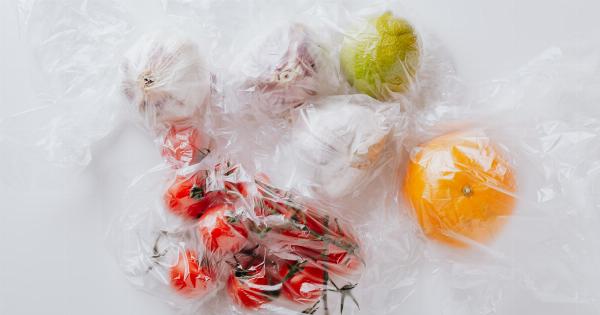Plastic membrane food wraps have turned out to be an essential commodity in modern households, and they are widely used around the globe to store and preserve food.
These wraps come with a lot of benefits, such as preventing food from getting contaminated or stale and helping it last much longer than it would in other forms of packaging. With all the benefits, however, there are a few important considerations that you should keep in mind while using these wraps.
1. Consider the environmental impact
Plastic wraps have a significant environmental impact as they cannot be easily reused or recycled. Therefore, it is essential to minimize their usage and look for eco-friendly alternatives that serve the same purpose.
You should also stay conscious of the amount of waste you are producing and dispose of these wraps responsibly to reduce the negative effects on the environment.
2. Beware of potential health risks
The use of plastic membrane food wraps has been associated with certain health risks. When heated, plastics release chemicals that can contaminate food and cause adverse effects on human health.
Additionally, leaching chemicals from plastic wraps and containers during storage or transport may cause health problems. Therefore, it is crucial to carefully read the instructions listed on the packaging to ensure that the wrap is safe for use and does not cause any adverse effects on human health.
3. Consider the type of food being wrapped
Not all foods are meant to be stored in plastic membrane wraps, especially those that are high in fat or have a strong odor.
Foods such as cheese and fresh meat can break down the plastic wrap over time, causing the food to spoil or release unpleasant odors. To avoid this, it is best to store these foods in airtight glass or ceramic containers.
4. Avoid wrapping acidic foods
Acidic foods such as tomato sauce, citrus fruits, and vinegar-based dressings have a corrosive effect on plastic wraps. The acids can react with the plastic, causing it to break down and release toxic chemicals into the food.
It is best to store these foods in glass or airtight containers instead of plastic wrap.
5. Store food in the right conditions
Plastic wraps work best when storing food in the fridge or freezer, as they prevent air and moisture from coming into contact with the food.
However, make sure that you wrap the food correctly to prevent freezer burn or moisture accumulation, which can cause spoilage and create unpleasant smells. To prevent these issues, ensure that the plastic wraps are sealed tight and that you store the food at the ideal temperature.
6. Purchase quality plastic wraps
Not all plastic wraps are created equal, and the quality can vary significantly depending on the brand and price point. Low-quality or thin wraps may not seal adequately, letting air and moisture into the food, leading to spoilage or freezer burn.
Ensure that you purchase high-quality plastic wraps that are sturdy and can withstand the weight and size of the food being wrapped.
7. Keep plastic wraps away from heat sources
Plastic wraps should not be directly exposed to heat sources such as the oven or microwave, as they can release toxic chemicals or melt. Use parchment paper or glass containers to cover food while heating them to avoid health hazards.
Alternatively, look for plastic wraps that are specifically labeled as microwave-safe.
8. Avoid wrapping hot food with plastic wraps
Wrapping hot food with plastic wraps can cause the plastic to melt, releasing harmful chemicals into the food. Allow the food to cool down before using plastic wrap. Alternatively, transfer the food to a glass or ceramic container before storing it.
9. Check the plastic seal before use
When using plastic membrane food wraps, ensure that the seal is airtight before storing the food. Loosely wrapped food can allow air and moisture to come into contact with the food, causing premature spoilage or contamination.
Before you wrap the food, ensure that the plastic is clean and dry to create the airtight seal needed.
10. Store the plastic wrap in a cool, dry place
To maintain the quality of the plastic membrane food wraps, ensure that they are stored in a cool, dry place away from direct sunlight and heat sources.
Excessive heat can cause the plastic to melt, while too much moisture can cause the wrap to stick together and become unusable.






























